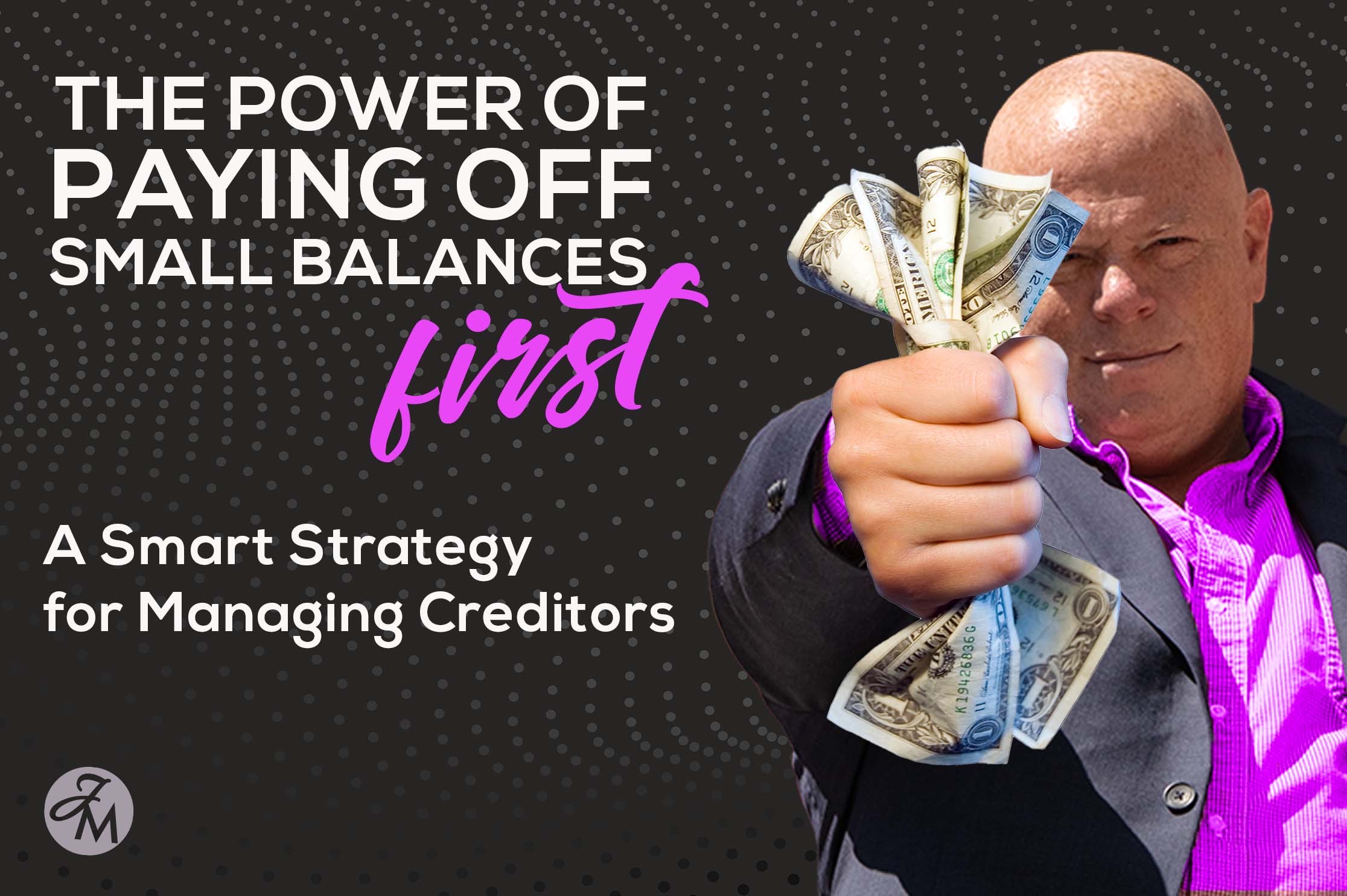Understanding the Debt Landscape:
Before diving into the strategy itself, it’s crucial to understand the dynamics of debt. When you owe money to multiple creditors, each with different balances and interest rates, it can be challenging to decide where to allocate your resources. Common sources of debt include credit cards, loans, and medical bills, each with its own set of terms and conditions.
The Importance of Prioritization:
When faced with multiple debts, it’s tempting to tackle the largest balances first, assuming they pose the greatest threat to your financial stability. However, prioritizing small balances can actually be a more effective strategy in the long run. Here’s why:
- Psychological Momentum:
Paying off small balances provides a psychological boost that can motivate you to continue tackling your debt. It creates a sense of accomplishment and progress, which can propel you towards your larger financial goals.
- Eliminating Minimum Payments:
Small balances often come with relatively low minimum monthly payments. By paying them off, you free up additional funds that can be redirected towards larger debts, accelerating your overall debt repayment process.
- Snowball Effect:
The “debt snowball” method, popularized by personal finance guru Dave Ramsey, emphasizes paying off the smallest debts first while making minimum payments on larger debts. As each small balance is cleared, you can apply the freed-up funds towards the next smallest debt, gradually building momentum towards debt freedom.
- Reduced Interest Charges:
While larger balances may accrue more interest over time, prioritizing small balances can still lead to significant interest savings. By eliminating smaller debts early on, you reduce the overall amount of interest you’ll pay over the life of your debts.
Implementing the Strategy:
Now that we understand why prioritizing small balances is important, let’s discuss how to put this strategy into action:
- Take Inventory:
Start by listing all of your outstanding debts, including balances, interest rates, and minimum payments. This will give you a clear overview of your financial obligations and help you prioritize your repayment strategy.
- Identify Small Balances:
Identify the debts with the smallest balances. These will be your primary targets for repayment.
- Allocate Extra Funds:
Devote any extra money you have towards paying off these small balances while continuing to make minimum payments on larger debts.
- Celebrate Progress:
As you pay off each small balance, celebrate your progress and use the momentum to tackle the next smallest debt on your list.
- Avoiding Late Fees and Penalties:
Small balances may seem insignificant compared to larger debts, but neglecting them can lead to costly consequences. Missing payments on even small debts can result in late fees, penalties, and damage to your credit score. By prioritizing the payment of small balances, you reduce the risk of incurring these additional expenses, ultimately saving you money in the long run.
- Improving Credit Utilization Ratio:
Your credit utilization ratio, which measures the amount of credit you’re using compared to your total available credit, is a crucial factor in determining your credit score. By paying off small balances, you reduce your overall debt burden and lower your credit utilization ratio, which can have a positive impact on your credit score. This, in turn, can open up opportunities for better interest rates on future loans and credit cards.
- Building Financial Discipline:
Successfully paying off small balances requires discipline and commitment to your financial goals. By consistently allocating funds towards debt repayment, you develop healthy financial habits that can serve you well in the long term. This newfound discipline can extend beyond debt repayment and positively impact other areas of your financial life, such as saving and investing.
- Creating a Sense of Control:
Debt can feel overwhelming, but prioritizing small balances allows you to take control of your financial situation one step at a time. As you systematically eliminate smaller debts, you gain a sense of control and empowerment over your finances. This can alleviate stress and anxiety associated with debt, allowing you to focus on your long-term financial goals with confidence.
Conclusion:
Prioritizing the payment of small balances over larger ones is not just a matter of financial strategy; it’s a mindset shift that can transform your relationship with debt. By recognizing the importance of tackling small debts early on, you set yourself up for greater financial success and freedom. So, don’t underestimate the power of paying off those seemingly insignificant balances – they may be the key to unlocking a brighter financial future. Take charge of your debt today and pave the way towards a more secure and prosperous tomorrow.
What is the debt snowball method?
The debt snowball method prioritizes paying off the smallest debts first, regardless of interest rate. This approach aims to build momentum and motivation by achieving quick wins through eliminating small balances.
Why prioritize small balances over larger ones?
There are several benefits to prioritizing small balances:
- Psychological boost: Paying off small debts quickly provides a sense of accomplishment and keeps you motivated.
- Eliminating minimum payments: Freeing up money from minimum payments on small debts allows you to pay down larger debts faster.
- Reduced interest charges: Eliminating smaller debts early reduces the total amount of interest paid over time.
How to implement the debt snowball method?
- List all debts with balances, interest rates, and minimum payments.
- Identify the debts with the smallest balances.
- Focus on paying off these small balances while making minimum payments on larger ones.
- Allocate any extra money towards paying off the smallest debts first.
- Celebrate each paid-off debt and use the momentum to tackle the next smallest one.
Are there any advantages to the debt snowball method besides paying off small debts?
Yes! The debt snowball method can improve your credit score by lowering your credit utilization ratio and instill financial discipline by requiring consistent effort towards debt repayment.
How can the debt snowball method help me feel more in control of my finances?
Paying off small debts allows you to take control of your finances in manageable steps. Eliminating debts reduces stress and anxiety and empowers you to focus on your long-term financial goals.


